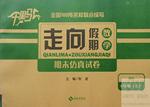题目内容
MEGADIM, Israel (AP)-The worst forest fire in Israel's history on Thursday destroyed one of the country's few forested areas, killing at least 36 guards on their way to rescue prisoners there, destroying homes and forcing the evacuation (疏散) of thousands. The fire ran through the Carmel forest in Israel's Galilee, reaching the coastal city of Haifa, jumping from place to place in the forest. The fire broke out around midday and quickly spread and was still burning out of control as midnight approached. Investigators (调查者) supposed that the fire could have been set accidentally, or it might have been a criminal act, but pretty much ruled out (排除) some sort of attack by a Palestinian group. “This is a huge disaster,” Prime Minister Benjamin Netanyahu said. “The government is using all means to control the fire.” He said some countries such as Cyprus, Italy, Russia and Greece agreed to provide backup. Most of the dead were Prison Service guards racing through the fire toward a prison to evacuate the prisoners, most of them Palestinians. A tree fell across the road, blocking their bus. Some guards were burned alive inside, while others died as they tried to escape. Fourteen bodies were found near the burnt bus 10 hours after the fire started. The fire heavily damaged one of Israel's few large forests, made up of natural growth and planted areas, a favorite place for camping and a home for dozens of species of wildlife. Forestry workers tried to evacuate animals from the fire. The forest recovered slowly from a fire in 1989, but experts said Thursday's big fire was many times worse.
- 1.
Some Prison Service guards died when they tried to ________.
- A.control the running prisoners
- B.put out the fierce forest fire
- C.get away from the burning bus
- D.save the guards trapped in the fire .
- A.
- 2.
According to the investigators, which of the following might be the cause of the fire?
- A.Prisoners set the fire purposely.
- B.The fire broke out all by itself.
- C.A Palestinian group did it.
- D.The fire was started by accident.
- A.
- 3.
We learn from the text that ________.
- A.all of the dead were Prison Service guards
- B.the forest once suffered a fire in the 1980s
- C.the animals didn't suffer from the fire
- D.the fire caused 50 deaths altogether .
- A.
- 4.
The text is mainly about ________.
- A.the worst forest fire in Israel's history
- B.the actual cause of the worst ever forest fire
- C.the damage caused by the forest fire
- D.the government's efforts in controlling the fire
- A.
CDBA
1.根据文章第五段可知, 当他们试图想逃离燃烧着的公车时死了。
2.根据文章第三段第一句可知火灾源于意外。
3.根据文章最后一段可知 B 项正确。
4.根据文章最后一段可知这场火灾是以色列历史上最严重的一场森林大火。
1.根据文章第五段可知, 当他们试图想逃离燃烧着的公车时死了。
2.根据文章第三段第一句可知火灾源于意外。
3.根据文章最后一段可知 B 项正确。
4.根据文章最后一段可知这场火灾是以色列历史上最严重的一场森林大火。

练习册系列答案
 千里马走向假期期末仿真试卷寒假系列答案
千里马走向假期期末仿真试卷寒假系列答案
相关题目